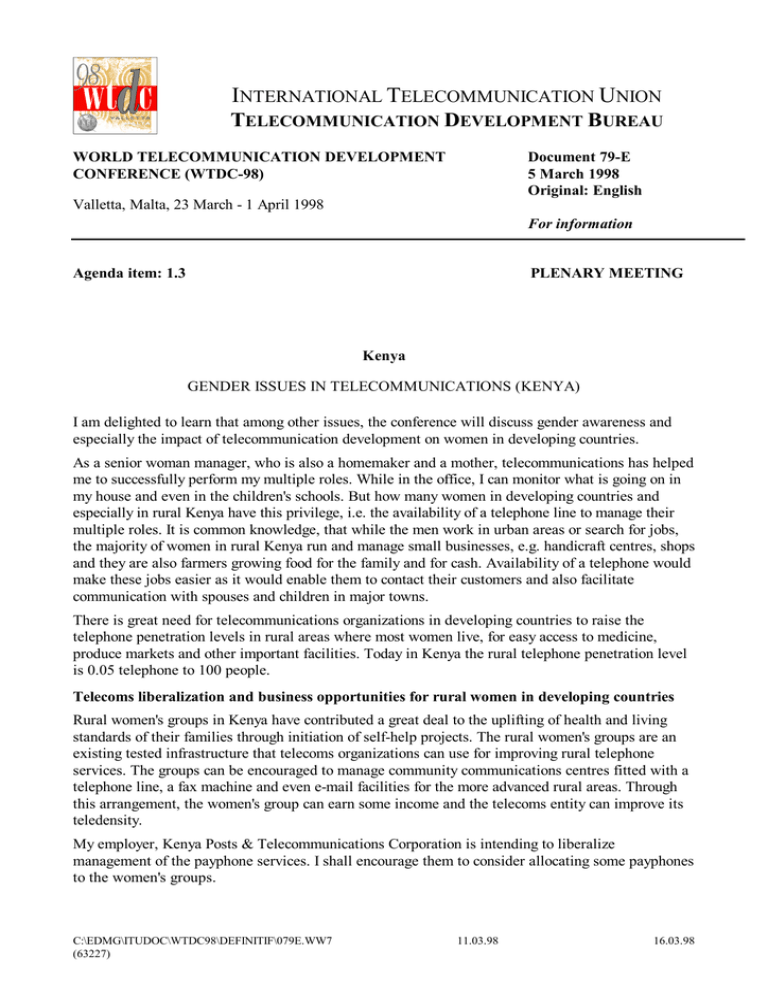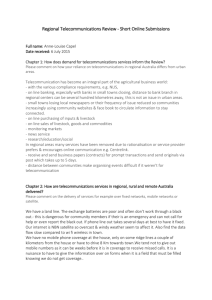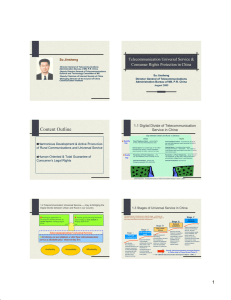I T U D
advertisement

I NTERNATIONAL TELECOMMUNICATION UNION TELECOMMUNICATION DEVELOPMENT BUREAU Document 79-E 5 March 1998 Original: English WORLD TELECOMMUNICATION DEVELOPMENT CONFERENCE (WTDC-98) Valletta, Malta, 23 March - 1 April 1998 For information Agenda item: 1.3 PLENARY MEETING Kenya GENDER ISSUES IN TELECOMMUNICATIONS (KENYA) I am delighted to learn that among other issues, the conference will discuss gender awareness and especially the impact of telecommunication development on women in developing countries. As a senior woman manager, who is also a homemaker and a mother, telecommunications has helped me to successfully perform my multiple roles. While in the office, I can monitor what is going on in my house and even in the children's schools. But how many women in developing countries and especially in rural Kenya have this privilege, i.e. the availability of a telephone line to manage their multiple roles. It is common knowledge, that while the men work in urban areas or search for jobs, the majority of women in rural Kenya run and manage small businesses, e.g. handicraft centres, shops and they are also farmers growing food for the family and for cash. Availability of a telephone would make these jobs easier as it would enable them to contact their customers and also facilitate communication with spouses and children in major towns. There is great need for telecommunications organizations in developing countries to raise the telephone penetration levels in rural areas where most women live, for easy access to medicine, produce markets and other important facilities. Today in Kenya the rural telephone penetration level is 0.05 telephone to 100 people. Telecoms liberalization and business opportunities for rural women in developing countries Rural women's groups in Kenya have contributed a great deal to the uplifting of health and living standards of their families through initiation of self-help projects. The rural women's groups are an existing tested infrastructure that telecoms organizations can use for improving rural telephone services. The groups can be encouraged to manage community communications centres fitted with a telephone line, a fax machine and even e-mail facilities for the more advanced rural areas. Through this arrangement, the women's group can earn some income and the telecoms entity can improve its teledensity. My employer, Kenya Posts & Telecommunications Corporation is intending to liberalize management of the payphone services. I shall encourage them to consider allocating some payphones to the women's groups. C:\EDMG\ITUDOC\WTDC98\DEFINITIF\079E.WW7 (63227) 11.03.98 16.03.98 -2CMDT98/79-E BDT could establish a fund to aid rural women's groups in acquiring the facilities and fees necessary for running a community communications centre. I shall be grateful if the idea of using the rural women's group for enhancement of teledensity in rural areas of developing countries is developed further in the conference. ____________________ C:\EDMG\ITUDOC\WTDC98\DEFINITIF\079E.WW7 (63227) 11.03.98 16.03.98




